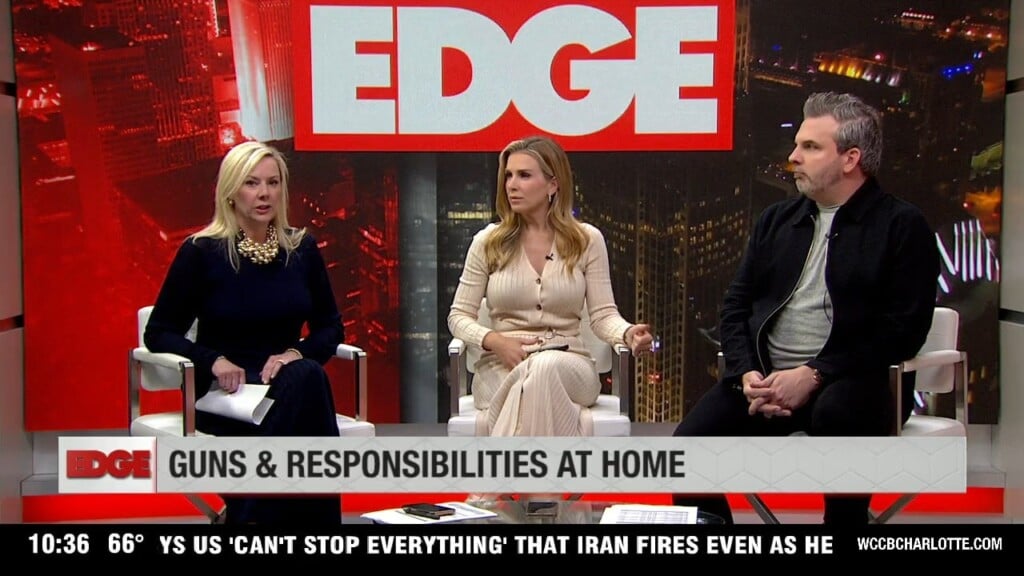SUPREME COURT-TOWN BOARD-PRAYER
High court ruling favors prayer at council meeting
WASHINGTON (AP) — The Supreme Court says prayers that open town council meetings do not violate the Constitution even if they routinely stress Christianity.
The court said in 5-4 decision Monday that the content of the prayers is not critical as long as there’s no effort to proselytize or to denigrate others, and as long as officials make a good-faith effort at inclusion.
Writing for the court, Justice Anthony Kennedy said that forcing clergy to scrub the prayers of references to Jesus Christ and other religious figures would turn officials into censors. Instead, Kennedy said, the prayers should be seen as ceremonial and in keeping with the nation’s traditions. Dissenting Justice Elena Kagan said the disputed prayers violated the norm of “religious equality.”
Atheist and humanist groups denounced the decision and said they’ll respond by volunteering to offer secular invocations at public meetings.
Sound: (3:06 a.m. audio feed)
220-w-37-(Jerry Bodlander, AP correspondent, with Alliance Defending Freedom Senior Counsel David Cortman)–The Supreme Court says a town can begin its meeting with a prayer. AP correspondent Jerry Bodlander reports. (5 May 2014)
< 221-a-08-(David Cortman, senior counsel, Alliance Defending Freedom, in conference call)-“without being censored”-Senior Counsel David Cortman of Alliance Defending Freedom, which represented the town of Greece, says he’s pleased with the ruling. ((cut used in wrap)) (5 May 2014) < 222-a-15-(Brett Harvey, senior counsel Alliance Defending Freedom, in conference call)-“what they believe”-Senior Counsel Brett Harvey of Alliance Defending Freedom, which represented the town of Greece, says the town’s practices have been upheld. (5 May 2014) < 223-a-06-(Brett Harvey, senior counsel Alliance Defending Freedom, in conference call)-“participating in anything”-Senior Counsel Brett Harvey of Alliance Defending Freedom, which represented the town of Greece, says prayer isn’t coercive. (5 May 2014) < SUPREME COURT-TOWN BOARD-PRAYER: REAX Supreme Court ruling prompts atheists to offer secular invocations WASHINGTON (AP) — The Supreme Court decision allowing sectarian prayers before government meetings is prompting atheists to offer secular invocations. The court ruled 5-4 that invocations can refer to Jesus Christ or other religious figures as long as there’s no effort to proselytize or denigrate others, and as long as officials make a good-faith effort at inclusion. The American Humanist Association is responding by signing up volunteers to offer secular invocations. Examples of such invocations on its website typically ask people at government meetings to open their eyes and think about their responsibilities instead of bowing their heads in prayer. The Freedom From Religion Foundation is offering an award for the best secular invocation. Sound: (3:06 a.m. audio feed) 244-w-30-(Steve Coleman, AP religion editor, with state Rep. Juan Mendez, D-Ariz.)–The Supreme Court decision allowing sectarian prayers before government meetings is prompting atheists to offer secular invocations. AP Religion Editor Steve Coleman reports. (5 May 2014) < 231-a-10-(David Cortman, senior counsel with the Alliance Defending Freedom, in prepared statement)-“for their communities”-David Cortman, senior counsel with the Alliance Defending Freedom, says the Supreme Court was right to uphold prayers before government meetings. (5 May 2014) < 232-a-05-(Brett Harvey, senior counsel with the Alliance Defending Freedom, in prepared statement)-“say or believe”-Brett Harvey, senior counsel with the Alliance Defending Freedom, says citizens should be free to pray before government meetings. (5 May 2014) < 233-a-12-(Annie Laurie Gaylor, co-president of the Freedom From Religion Foundation, in AP interview)-“their local board”-Annie Laurie Gaylor, co-president of the Freedom From Religion Foundation, says her organization is calling for secular invocations before public meetings. (5 May 2014) < 234-a-08-(Roy Speckhardt, executive director of the American Humanist Association, in AP interview)-“across the country”-Roy Speckhardt, executive director of the American Humanist Association, says non-religious citizens will volunteer to give more invocations. (5 May 2014) < 235-r-14-(State Rep. Juan Mendez, D-Ariz., delivering secular invocation on May 21, 2013)-“of our state”-Sound of Arizona state Representative Juan Mendez delivering a secular invocation in the state House on May 21, 2013. (5 May 2014) < CARROLL COUNTY-PRAYER Court lifts bar to Christian prayer in Md. County BALTIMORE (AP) — A federal judge in Baltimore is lifting an order barring Christian prayers at the opening of government meetings in Carroll County, Maryland. Judge William Quarles vacated his March 25 preliminary injunction Monday after the U.S. Supreme Court ruled in favor of Christian prayers at town board meetings in Greece, New York. The plaintiffs in the Maryland case say they won’t be deterred. Attorney David Niose (nee-OH’-see) of the American Humanist Association says the two cases are factually different. The prayers that open the Greece town board meetings are said by local clergy members, whereas the prayers at Carroll County Commissioners meetings have been said by the commissioners, with some praying specifically to Jesus Christ. Niose says that amounts to unconstitutional government speech favoring a specific religion. VATICAN-UN-ABUSE At UN, Vatican sex abuse compared with torture GENEVA (AP) — A U.N. committee is comparing the Vatican’s handling of the global priest sex abuse scandal with torture. And that raises the possibility that the failure to investigate clergy and their superiors could have broader legal implications. But the Vatican’s top envoy in Geneva insisted Monday that the Holy See is getting its house in order after a decade-long effort to deal with the sex abuse scandal. Archbishop Silvano Tomasi spoke to a panel of experts in charge of a U.N. treaty against torture that the Vatican ratified the treaty 12 years ago. Experts peppered the Vatican with tough questions. They asked why the Vatican believes its responsibility for protecting against torture only applies within tiny Vatican City. And they asked why its report on implementation of the treaty was almost a decade late. A human rights attorney says a finding by the committee that the systematic abuse amounts to torture could open the floodgates to abuse lawsuits dating back decades. Sound: (3:06 a.m. audio feed) 193-c-19-(Nicole Winfield, AP correspondent)-“tiny little city-state”-AP correspondent Nicole Winfield reports most members of the U.N. panel say the Vatican has responsibility for the global priest sex abuse scandal under an international treaty against torture and inhuman treatment. The Vatican has a different view of its responsibility. (5 May 2014) < 194-c-19-(Nicole Winfield, AP correspondent)-“this problem continue”-AP correspondent Nicole Winfield reports the Vatican claims it has an effective movement against clergy abuse, but doesn’t think the U.N. treaty against torture and inhuman treatment is relevant to those cases. (5 May 2014) < 195-c-16-(Nicole Winfield, AP correspondent)-“limitations be waived”-AP correspondent Nicole Winfield reports some organizations representing abuse victims believe a favorable ruling by the U.N. committee could open the door to compensation for victims who lack legal remedies because they didn’t act quickly enough. (5 May 2014) < 163-a-11-(Archibishop Silvano Tomasi (sihl-VAH’-noh toh-MAH’-see), Vatican representative to the United Nations in Geneva, with reporters)-“has to continue”-Archibishop Silvano Tomasi, the Vatican’s representative to the U.N. in Geneva, says action taken by the Church against abusive clergy has been effective. (5 May 2014) < 164-a-13-(Archibishop Silvano Tomasi (sihl-VAH’-noh toh-MAH’-see), Vatican representative to the United Nations in Geneva, with reporters)-“reduction of cases”-Archibishop Silvano Tomasi, the Vatican’s representative to the U.N. in Geneva, says the Church has paid two-and-a-half billion dollars in compensation to abuse victims in the United States, and the Vatican response there has been successful. (5 May 2014) < 165-a-13-(Barbara Blaine, president, Survivors Network of those Abused by Priests, with reporters)-“make children safer”-Barbara Blaine of the Survivors Network of those Abused by Priests, or SNAP, says there are still more steps the Vatican could take to curb the problem of abusive clergy — and she notes one major step. (5 May 2014) < 166-a-16-(Megan Peterson, clerical abuse victim, with reporters)-“stopping, punishing whistleblowers”-Megan Peterson says that, as an abuse victim herself, she sees plenty that must be done to protect children from abusive clergy. (5 May 2014) < VATICAN-US NUNS Crackdown on US nuns continues under Pope Francis NEW YORK (AP) — The Vatican is sending its clearest signal under Pope Francis that it will press forward with a crackdown on the largest umbrella group for U.S. nuns. The head of the Vatican agency in charge of the overhaul is rejecting the sisters’ objections and telling them they must do more to cooperate. Cardinal Gerhard Mueller made the comments in a Rome meeting with the top executives of the Leadership Conference of Women Religious. The Vatican posted the remarks online Monday. The reform order was issued in 2012 under now retired Pope Benedict XVI, after an investigation concluded the nuns’ group undermined church teaching and focused too much on social justice. As Francis has said the church should focus more on social justice, some have expected a new approach to the nuns. US-BRUNEI-ISLAMIC LAW US concerned about Islamic law in Brunei WASHINGTON (AP) — The U.S. is expressing concerns about the institution of Islamic criminal law in the Brunei. The Southeast Asian nation has started phasing in a version of Shariah (shah-REE’-yuh) that allows for penalties such as amputation for theft and stoning for adultery. Brunei citizens can now be fined or jailed by Islamic courts for not performing Friday prayers, pregnancy out of wedlock, propagating other religions and indecent behavior. More severe punishments such as flogging, amputation of limbs and stoning for offences such as theft, adultery and sodomy will be introduced in phases over the next two years. State Department spokeswoman Marie Harf says the U.S. is “watching how the law will be implemented,” but is concerned that it may violate freedom of religion. Most of the punishments can be applied to non-Muslims, who account for about one-third of the 440,000 people in the oil-rich country. Sound: (3:06 a.m. audio feed) 316-a-16-(Marie Harf, State Department spokeswoman, at briefing)-“in the code”-State Department spokeswoman Marie Harf says the U.S. is concerned about the implementation of Islamic criminal law in Brunei. (5 May 2014) < US-BEVERLY-HILLS-HOTEL-SULTAN Brunei’s new laws affect Sultan’s Hollywood ties LOS ANGELES (AP) — Hollywood is responding to harsh new laws in Brunei by boycotting the Beverly Hills Hotel. The Motion Picture & Television Fund joined a growing list of organizations and individuals Monday refusing to do business with hotels owned by the Sultan or government of Brunei. They’re protesting the country’s new penal code that calls for punishing adultery, abortions and same-sex relationships with flogging and stoning. The Motion Picture & Television Fund says it won’t hold its annual Night Before the Oscar party at the hotel as it has for many years. Brunei’s Sultan Hassanal Bolkiah has praised his country’s new Islamic Shariah criminal law. He owns the Beverly Hills Hotel. Others boycotting the hotel include Richard Branson and the Feminist Majority Foundation, which moved its annual Global Women’s Rights Awards on Monday to the nearby Hammer Museum. UNITED STATES-NIGERIA-KIDNAPPED GIRLS White House: US trying to help find Nigerian girls WASHINGTON (AP) — The White House says the United States is doing what it can to help find and free nearly 300 Nigerian girls kidnapped by Islamic extremists. White House spokesman Jay Carney told reporters Monday the U.S. assistance includes counterterrorism support and logistics to Nigerian investigators. Carney is calling the April 15 mass abduction from a school “an outrage and a tragedy.” The leader of Islamist extremist organization, Boko Haram, says he’s keeping the girls as slaves and threatening to sell them. Carney called Boko Haram a group of terrorists with “heinous and malicious intent.” Carney says President Barack Obama is receiving regular updates from national security advisers who are closely monitoring the situation. Sound: (3:06 a.m. audio feed) 315-w-58-(Steve Coleman, AP religion editor, with White House Press Secretary Jay Carney)–A Closer Look: The U.S. offers help to find and free hundreds of Nigerian girls kidnapped by Islamic militants. AP Religion Editor Steve Coleman reports. (5 May 2014) < 227-a-11-(Jay Carney, White House press secretary, at news conference)-“the situation there”-White House press secretary Jay Carney says the abduction of nearly 300 Nigerian schoolgirls by Islamic extremists in Nigeria is appalling. (5 May 2014) < 228-a-13-(Jay Carney, White House press secretary, at news conference)-“those young women”-White House press secretary Jay Carney says America is offering to help Nigeria deal with the extremist group responsible, Boko Haram. (5 May 2014) < NIGERIA-KIDNAPPED GIRLS Nigeria: Boko Haram threatens to sell kidnap girls LAGOS, Nigeria (AP) — Nigeria’s Islamic extremist leader is threatening to sell hundreds of teenage schoolgirls abducted from a school in the remote northeast of the country three weeks ago. Abubakar Shekau for the first time also claimed responsibility for the April 15 mass abduction, in a video received by The Associated Press on Monday. “I abducted your girls,” he said. And, “By Allah, I will sell them in the marketplace.” Nigeria’s police have said more than 300 girls were abducted: 276 remain in captivity and 53 have managed to escape. The mass abduction and the military’s failure to rescue the girls and young women has roused national outrage with protests in major cities. Protesters accused President Goodluck Jonathan of being insensitive to the girl’s plight. Jonathan says his government and the military are doing everything possible. Sound: (3:06 a.m. audio feed) 188-a-10-(Martha Yarama Ndirpaya (MAR’-tah yah-RAH’-mah ihn-dihr-PY’-ah), relative of missing girl, in AP interview)-“has been done”-Martha Yarama Ndirpaya, a relative of one of the missing girls, says there’s no evidence that the Nigerian military has ventured into the back country of northern Nigeria to look for the girls. (5 May 2014) < 189-a-10-(Hadiza Bala Usman (hah-DEE’-sah BAH’-lah YOOS’-man), activist helping families of missing girls, in AP interview)-“on the operations”-Hadiza Bala Usman, a Nigerian activist, says the government has been slow to formulate a rescue plan. (5 May 2014) < SUDAN-HOSPITAL BOMBED Catholic bishop: Sudan tried to bomb hospital NAIROBI, Kenya (AP) — A Catholic bishop says that Sudanese war planes deliberately targeted and bombed a Catholic hospital in a region of southern Sudan where government troops and rebel forces are fighting. Bishop Macram Max Gassis said Monday that the bombings Thursday and Friday in the Nuba Mountains are an outrage. Gassis asked Sudan President Omar al-Bashir to ensure the hospital is protected from future attacks. An American doctor who works at the Mother of Mercy Hospital, Tom Catena, told the news website Nuba Reports that Sudan’s government wants the people of the region to leave, so the military is trying to destroy infrastructure and “demoralize everybody.” Nuba Reports said that at least one person was wounded. No deaths were reported. Gassis said that before the bombs, military drones flew over the area. MUSLIM WRESTLER-BEARD Muslim college wrestler gets waiver to keep beard BUFFALO, N.Y. (AP) — A Muslim college wrestler in New York who chose to sit on the sidelines rather than shave his beard has been granted a waiver that will allow him to compete with the facial hair. The Council on American-Islamic Relations on Monday praised the NCAA’s decision in the case of University at Buffalo wrestler Muhamed McBryde. NCAA rules say that wrestlers must be clean shaven. But McBryde says shaving his beard would compromise his faith. He missed nearly a whole season of competition because of the conflict. In April, the NCAA Wrestling Rules Committee said McBryde could compete with a beard during the 2014-15 season, as long as he wears a face mask and chin strap to cover it.




